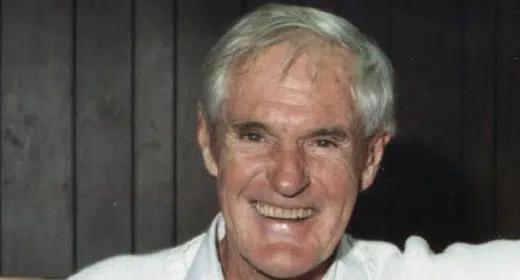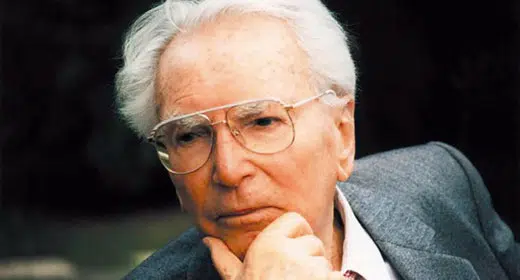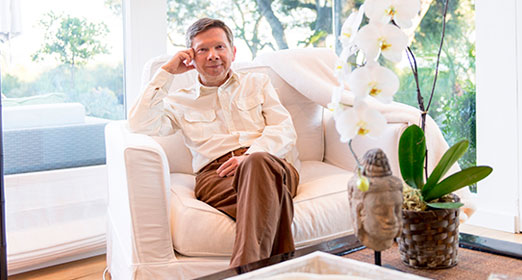by Ed and Deb Shapiro: I was discussing stress at a mindfulness retreat when Joe, an attendee, shared how he didn’t get stressed over any one thing because

everything was stressful to him, so he would wake up already stressed. Sound familiar?
We have all experienced stress and anxiety, its close companion. In small doses stress it can heighten awareness, but in big doses on a daily basis it begins to have a more debilitating effect. At least two-thirds of doctor visits are due to stress-related symptoms, which costs businesses approximately $300 billion a year, while stress and anxiety are major contributors, either directly or indirectly, to six of the leading causes of death in the US. The three best-selling prescription medications are for anxiety, hypertension and ulcers, all stress-related symptoms.
Stress weaves its way into every area of our lives. Frustration, insecurity, fear, guilt and depression are the most common factors that turn stress into distress. We have have yet to learn how to deeply relax. This is especially so as there are no medications that change our circumstances, get us a new job, or see us through a divorce. The relief has to be found within and by ourselves.
A stressful reaction may be the result of different situations, or of modes of behavior that react to situations in a certain way and trigger the inner alarm signal, as in Pavlov’s dogs. All our past traumas and experiences are recorded in the unconscious where they make deep impressions, known in yoga as samskaras, a Sanskrit word meaning mental impressions that influence us from an unconscious and subconscious level. These impressions constantly affect our conscious mind, determining how we make decisions or why we behave in certain ways. They hold us in fixed patterns, which create the limitations we then need to shift if we are to be stress-free and relaxed.
Language can also be a stressor by creating specific attitudes or reactions. For example, when we consistently repeat words such as terrible, awful, scared or frightened, we are imposing a pattern in the mind. By repeating them, they may start having a literal effect that can set off the stress alarm. Common phrases that give the mind an impression of fear or of being threatened include “I can’t stand it,” “It’s killing me,” or “This is going to be the end of me”. It’s irrelevant whether the threat actually exists or not, as there’s equally a rush of adrenalin.
Doubt is a big stressor, whether it’s doubt in ourselves or doubt that everything will be ok. The smallest amount of doubt that comes into our mind about whether things will go well immediately causes chaos and confusion, leading to stress. This opens the way to nervousness and fear: “Did I remember to lock the door, if I didn’t lock the door someone’s going to break in,” etc. So stress can be a response to the expectancy that difficult things will happen, as well as to our doubt that we’ll be able to deal with them, which is a sort of built-in self-destruction clause.
What’s the real issue?
Stress itself is not really the issue. Rather, it’s our reaction to it that determines its effect. In other words, stress is not an independent entity that invades our lives, but the result of how we meet our challenges or difficulties, regardless of what the stress-producing factor may be; a potentially stressful circumstance can be stimulating and uplifting if we perceive ourselves as able to cope, but if we feel overwhelmed or helpless then distress is sure to follow.
So, depending on how we react to the events in our lives or how we feel we are being treated, tension levels can rise. Especially if we believe we are useless or helpless, as stress will increase or decrease based on how we perceive the relationship between ourselves and our world. It is our perception that determines our response. And by changing our mindset we can change our perception.
Relaxation is relatively simple, yet highly misunderstood; we think: “If I do this or that I will relax and then I will be better.” But our relaxation will stay both superficial and temporary if we don’t bring mindful awareness to it. Mindfulness is paying attention, focusing awareness, and awakening that awareness in our whole being. When we are mindfully relaxed we are consciously aware of letting go on a deeper, more long-lasting and profound level that influences our every thought, word and action.
Extracted from The Art of Mindful Relaxation by Ed Shapiro
***********************
Ed Shapiro is the author of The Art Of Mindful Relaxation, The Heart of Yoga Nidra. Award-winning Authors Ed and Deb are mindfulness, meditation and yoga experts. Deb is the author of Your Body Speaks Your Mind, now in 19 languages. They have six meditation downloads.








































